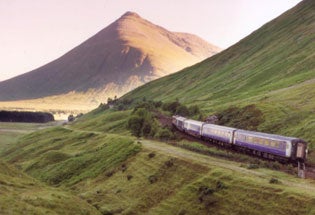First £1,000 rail fare revealed

Your support helps us to tell the story
From reproductive rights to climate change to Big Tech, The Independent is on the ground when the story is developing. Whether it's investigating the financials of Elon Musk's pro-Trump PAC or producing our latest documentary, 'The A Word', which shines a light on the American women fighting for reproductive rights, we know how important it is to parse out the facts from the messaging.
At such a critical moment in US history, we need reporters on the ground. Your donation allows us to keep sending journalists to speak to both sides of the story.
The Independent is trusted by Americans across the entire political spectrum. And unlike many other quality news outlets, we choose not to lock Americans out of our reporting and analysis with paywalls. We believe quality journalism should be available to everyone, paid for by those who can afford it.
Your support makes all the difference.The rise in the cost of train tickets has led to the first £1,000 rail fare, it was revealed today.
The fare - of £1,002 - is for a turn-up-and-go, first-class return from Newquay in Cornwall to the Kyle of Lochalsh in the Scottish Highlands.
Unearthed in a survey of fares by rail expert Barry Doe, the Cornwall to Scotland return trip would cover around 1,700 miles, with tickets able to be bought from the CrossCountry train company.
Mr Doe's research, highlighted in the London Evening Standard, also showed that some standard-class, turn-up-and go return fares have risen 100 per cent in price since the mid-1990s.
A London-to-Manchester return, for example, has gone up from £33 in 1995 to £66.10 now, while a London-to-Newcastle upon Tyne return has risen 84 per cent to £105.
Cat Hobbs, public transport campaigner for the Campaign for Better Transport, said today: "The Newquay £1,000 fare shows just how pricey and complicated the fare structure is.
"We think fares in this country are far too expensive. They are the most expensive in Europe. We think the Government should step in and review how they regulate fares."
Under an annual inflation rate price formula, regulated fares (which include season tickets) will actually go down in January as retail price index inflation is in negative territory.
But Ms Hobbs said today that the Government should not take any credit for this dip in fares as it was merely a result of the recession.
She went on: "Our fear is that the train companies will put up unregulated fares (which include many off-peak tickets) to compensate for the dip in regulated fare income.
"The Government should not let the train companies take all the flak for this. It's up to the Government to change the system."
A spokesman for CrossCountry said: "No-one has actually bought this £1,000 fare but it does exist. Someone wanting a first-class return would be likely to book a saver return in advance and pay £561."
Join our commenting forum
Join thought-provoking conversations, follow other Independent readers and see their replies
Comments